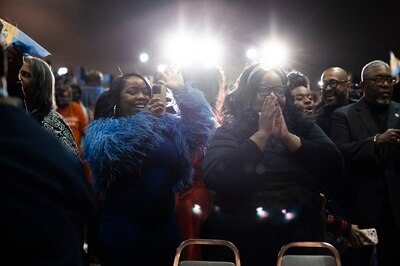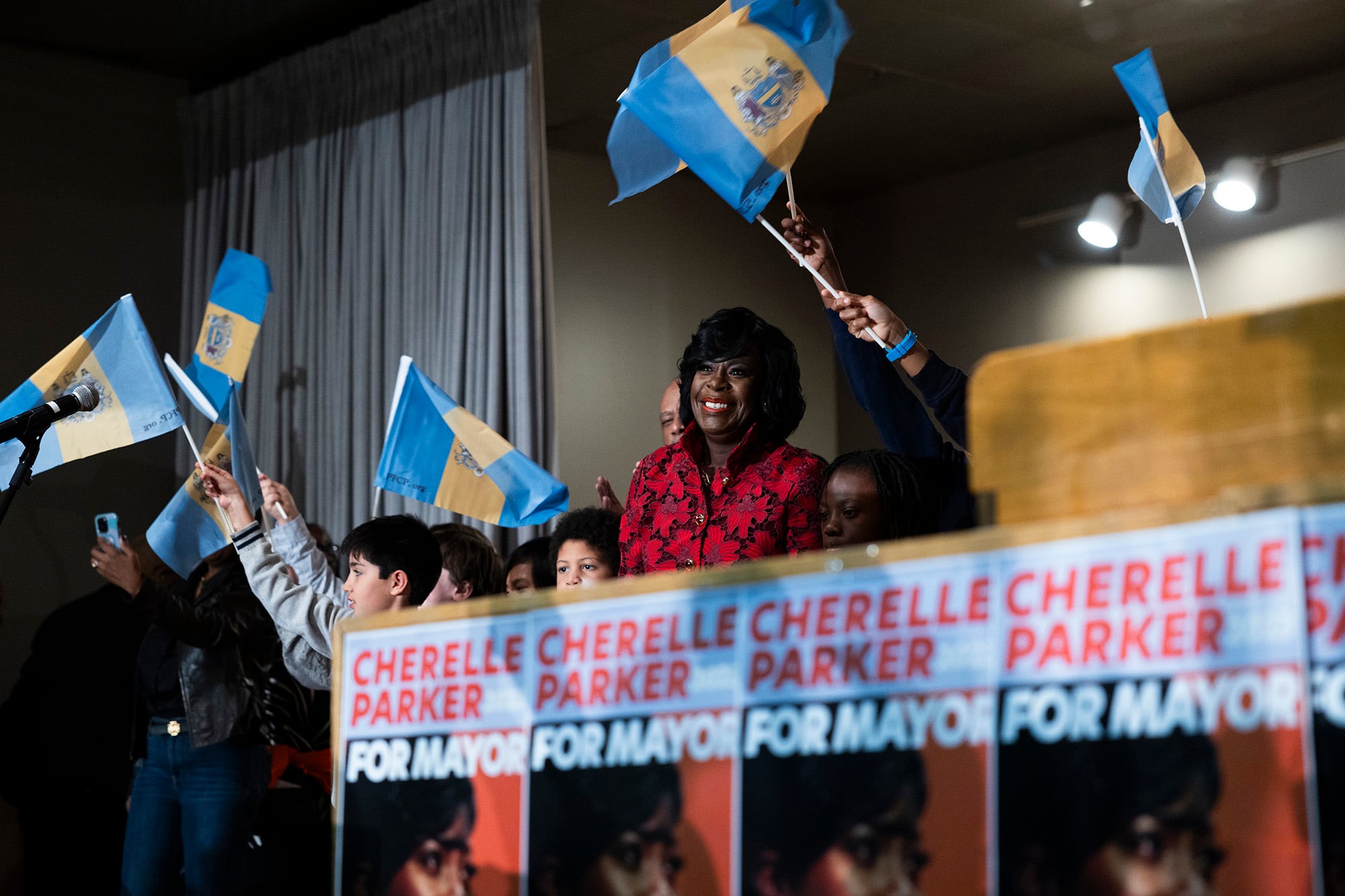Sign up for Chalkbeat Philadelphia’s free newsletter to keep up with the city’s public school system.
Democrat Cherelle Parker will be Philadelphia’s 100th mayor and the first woman to hold the position.
The Associated Press called the race for Parker Tuesday evening shortly after polls closed.
Parker will set the agenda on school safety, infrastructure, charter schools, funding, and more. She will have the power to appoint the city Board of Education’s nine members, who in turn evaluate the superintendent and monitor the district’s attempts to improve educational outcomes for students.
In her victory speech Tuesday night at the Sheet Metal Workers Local 19 headquarters, Parker reiterated her campaign promise to move towards year-round public school and said, “we are going to find a way to move educational opportunities for our young people forward.”
“We want all of our children in a 21st-century, modern school building with the highest academic achievement,” Parker said. “If anybody is interested in talking to me about public education, and you’re trying to pitch traditional publics against charters, don’t do it. I’m not the person to have that conversation with.”
With more than 273,800 ballots counted and 1,542 of 1,703 divisions reporting, the unofficial election results are:
- Democrat Cherelle Parker: 73.6% (193,968 votes)
- Republican David Oh: 25.6% (67,353 votes)
Check out our mayoral guide for more from both candidates.
In Philadelphia, where registered Democrats outnumber Republicans seven-to-one, there has been little doubt that Parker would win the general election. She collected endorsements from some of the most powerful labor unions in the city and promised to be a pragmatic dealmaker in Harrisburg capable of bringing more state funding to Philadelphia.

This election cycle, Parker leaned on her proposal for year-round public schools — which Superintendent Tony Watlington promised to pilot — her desire to reform the much-maligned lottery admissions process for selective schools, and an increased police presence in and around schools.
Republican David Oh, meanwhile, told Chalkbeat he saw a path to victory due in large part to his active, in-person campaign strategy. While Parker opted to stay out of the public eye for much of the summer, recovering from a dental emergency and holding private meetings, Oh was door-knocking, giving interviews, and calling for public debates.
Oh’s education platform called for a partially elected school board and a more “horizontal” district leadership model, with power shared between the superintendent and other chief executives.
Tonight’s vote counts are unofficial until the Philadelphia City Commissioners, the officials who oversee the city’s elections, certify the results.
Carly Sitrin is the bureau chief for Chalkbeat Philadelphia. Contact Carly at csitrin@chalkbeat.org.





